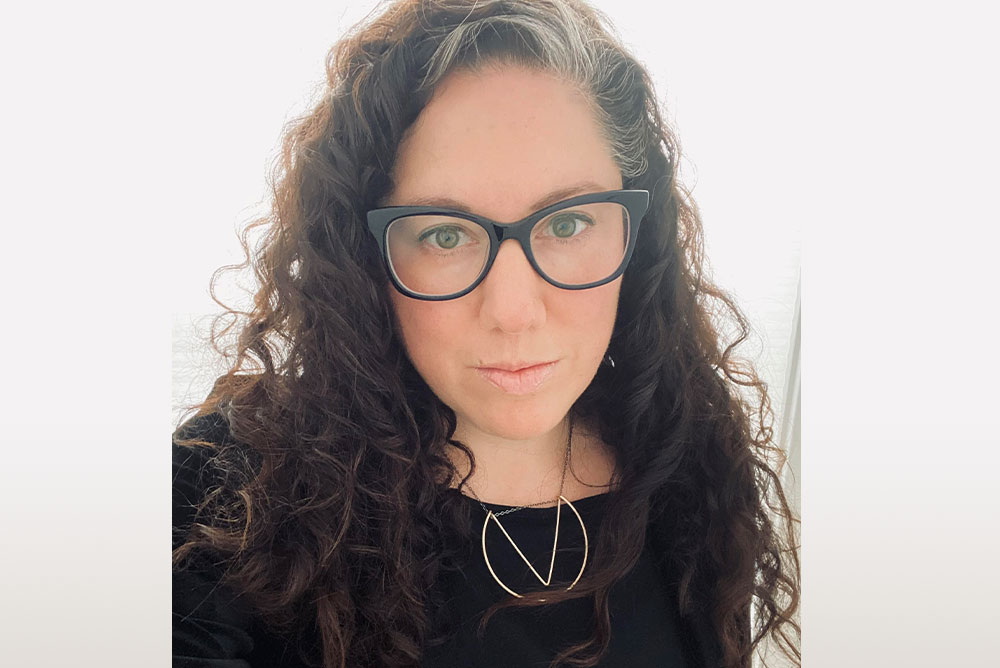
Image courtesy of Erika Meitner.
Erika Meitner is the author of five books of poems, including Ideal Cities—a 2009 National Poetry Series winner; Copia; and Holy Moly Carry Me, winner of the 2018 National Jewish Book Award and a finalist for the National Book Critics Circle Award in poetry. Currently a professor of English at Virginia Tech, her next book of poems, Useful Junk, is forthcoming this year. We got a chance to talk with Meitner, who will be curating Zócalo’s March poetry selections, in the green room, where she shared her favorite meme, why she writes in her car, and how she ended up watching hours of George Balanchine choreography for work.
What’s your go-to karaoke song?
I haven’t done karaoke in approximately 8 billion years. But I just went to see Billy Joel at Madison Square Garden, [and] “We Didn’t Start the Fire” takes up a ridiculous amount of space in my brain. So if I were to do karaoke again, I might pick that song.
What’s hanging on your living room walls?
I have a lot of weird stuff. I collect a lot of art by young artists that I really love. So, I have a print by an artist named Scott Listfield—who I went to college with—who does these astronaut-apocalypse prints. A print by social activist and illustrator Molly Crabapple whose work I really love. There’s a young artist out of Chicago, Kayla Mahaffey, whose work I have up there too.
Where do you write?
Honestly, in my car on my phone notepad, when I’m in between things or in motion.
Which poems or which poets have influenced or stayed with you?
There’s so many. On a daily basis, Lucille Clifton.
What Lucille Clifton poem would you recommend to someone unfamiliar with her work?
Definitely “blessing the boats.” I hate this word [“resilience”], but it’s a poem about resilience, or being able to survive things.
How has the pandemic affected the way you view poetry?
A fascinating statistic from the American Academy of Poets saw that their readership quintuple because people reached toward poetry to try to make sense of the pandemic. From a readership standpoint, people wanting different kinds of connection to language and each other, it was a real boon for poetry. For actual people trying to make poems, as someone with kids whose schools just randomly close for months at a time, it was not a great time for people who are caregivers to try to make new poems.
What’s the strangest job you’ve ever had?
I was a documentary film production assistant on a project called “The George Balanchine [Foundation Video] Archives,” where I watched all of his prima ballerinas recreate his dances for his archives and bought them lunch and stuff. I was running weird errands like getting more ribbons for their toe shoes. I got to watch them recreate all of his famous dances— Nutcracker, Swan Lake…
What do you do to decompress?
Since the pandemic started, I go for very, very, very long walks—like, epic walks.
When and where did you learn to swim?
I grew up on Long Island, and the only summer jobs for most of us were in lifeguarding. I’m actually a terrible swimmer. I passed that lifeguard test by the skin of my teeth; it’s amazing I even did. I don’t know where I learned to swim. I’m a throwback Jew to another century, and my family used to go up to bungalow colonies in the Catskills, and they had pools, so it must have been up there.



